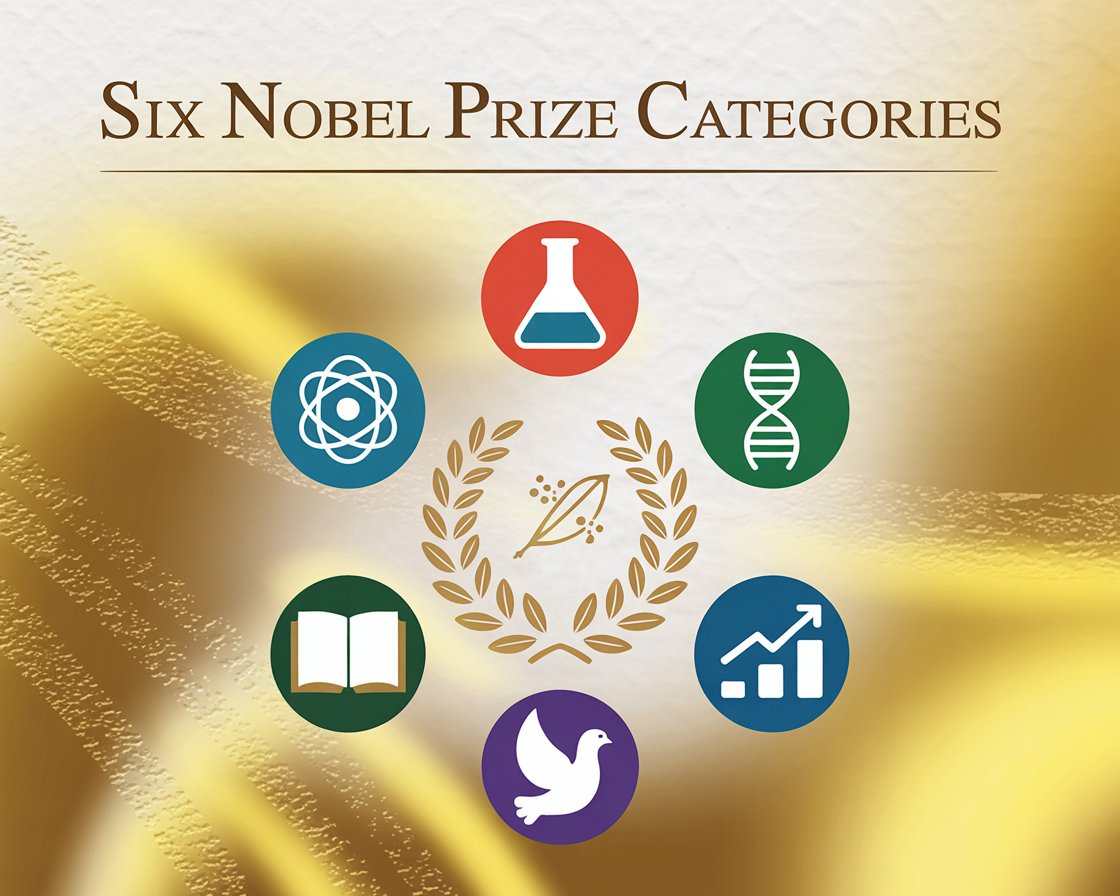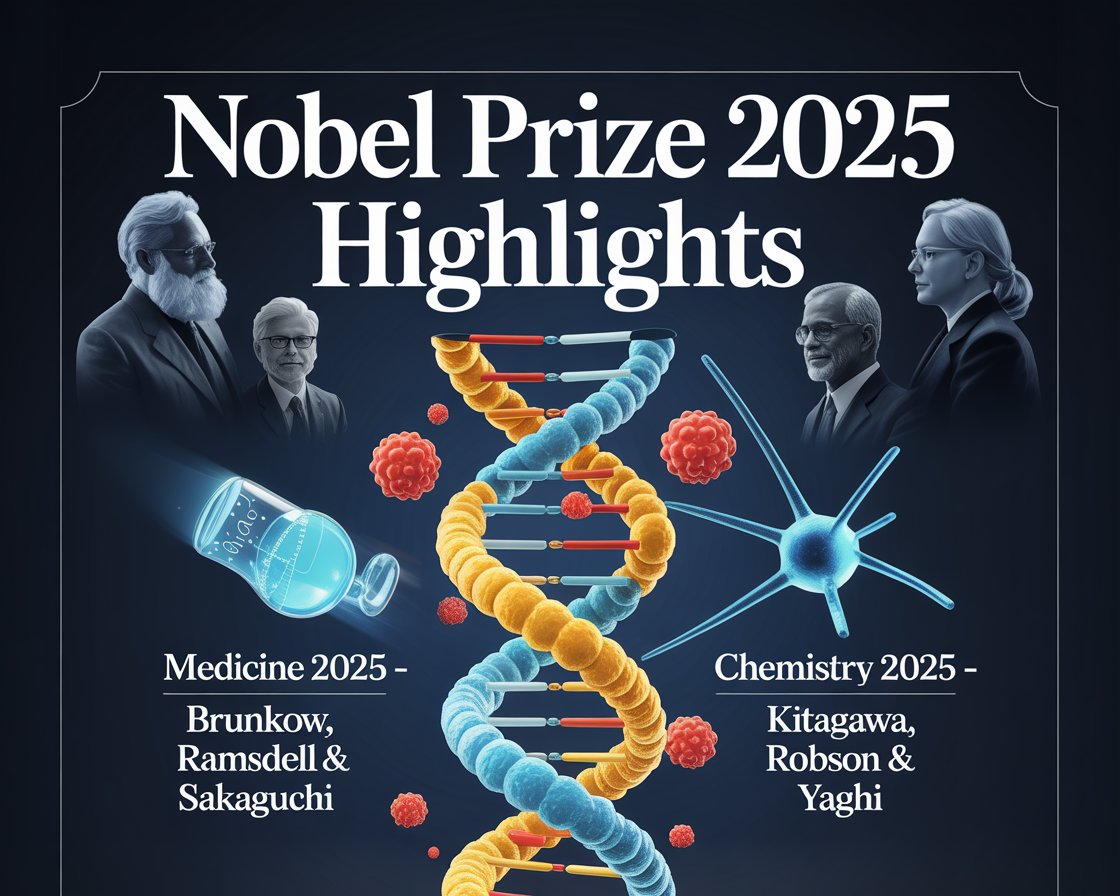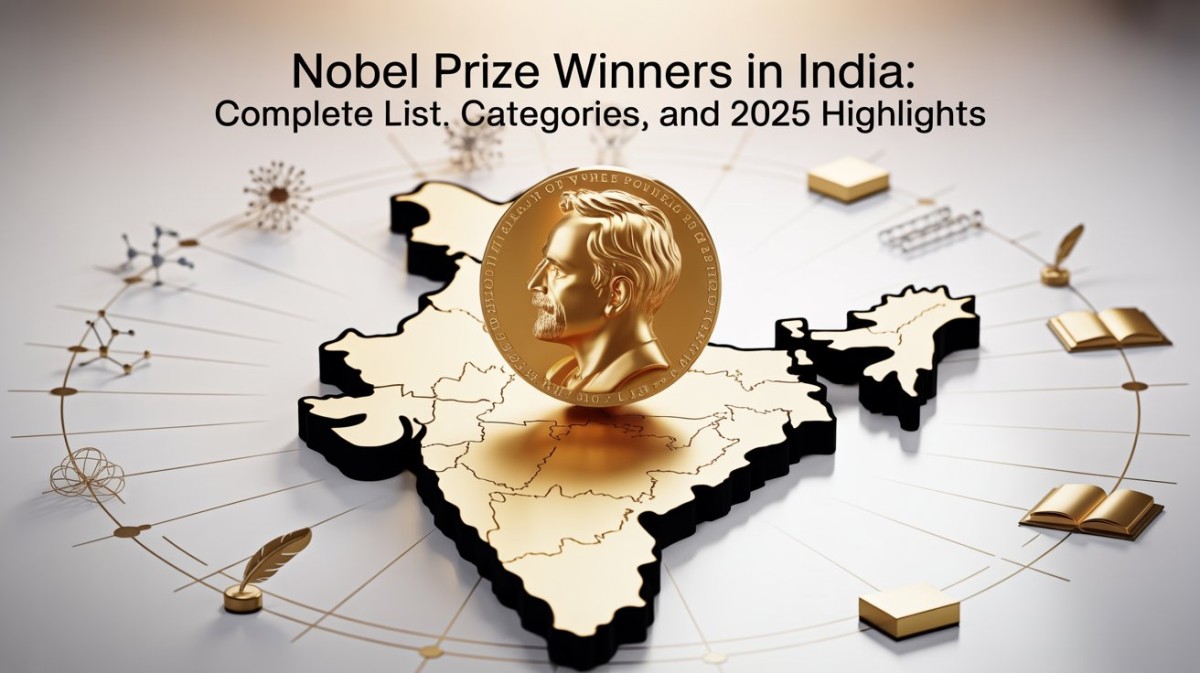The Nobel Prize is one of the most discussed topics over the last few days; it is amongst the most prestigious global honours awarded to individuals or honours who have worked profoundly to benefit humanity. Therefore, this blog will help you understand how many Nobel Prize categories there are in total, when the Nobel Prizes were first awarded, and a complete list of Indian Nobel laureates.
How many Nobel Prize categories are there?
Officially, there are six Nobel Prize categories:
 ✦ Physics
✦ Physics
✦ Chemistry
✦ Physiology or Medicine
✦ Literature
✦ Peace
✦ The Sveriges Riksbank Prize in Economic Sciences in Memory of Alfred Nobel (commonly called “Nobel Prize in Economics”)
✦ Though the Economics prize was not part of Alfred Nobel’s original will, it is often considered alongside the “classic” five.
Also read - Top 20 Vaccination Questions in India
When was the Nobel Prize first awarded?
The first Nobel Prizes were awarded in 1901. Over the past few years, these awards have been recognized for the prominent achievements across different sectors such as sciences, arts, peace, and economics.
Victor Ambros & the Nobel Prize (2024): In 2024, Victor Ambros and Gary Ruvkun were awarded the Nobel Prize in Physiology or Medicine for their discovery of microRNA and its role in post-transcriptional gene regulation. MicroRNAs are tiny RNA molecules that regulate how genes are expressed by binding messenger RNA and preventing protein synthesis in some cases, which is a surprising layer of regulation.
You can explore - Telemedicine: The Future of Healthcare at Your Fingertips
Nobel Prize Winners in India: Complete List & Insights
Name |
Year |
Category |
Key Contribution / Notes |
|
Rabindranath Tagore |
1913 |
Literature |
First Indian and Asian Nobel laureate; honored for Gitanjali |
|
C. V. Raman |
1930 |
Physics |
Discovered the Raman Effect (scattering of light) |
|
Har Gobind Khorana |
1968 |
Physiology or Medicine |
Deciphered the genetic code and its role in protein synthesis |
|
Mother Teresa |
1979 |
Peace |
Recognized for humanitarian work with the Missionaries of Charity |
|
Subrahmanyan Chandrasekhar |
1983 |
Physics |
Theoretical studies on stellar evolution and black holes |
|
Amartya Sen |
1998 |
Economics |
Contributions to welfare economics and social choice theory |
|
Venkatraman Ramakrishnan |
2009 |
Chemistry |
Structural studies of the ribosome |
|
Kailash Satyarthi |
2014 |
Peace |
Efforts to end child labor and promote children’s rights |
|
Abhijit Banerjee |
2019 |
Economics |
Experimental approach to poverty alleviation and development economics |
Notes & Observations:
Some laureates, such as Har Gobind Khorana and Subrahmanyan Chandrasekhar, were Indian-born but became citizens or worked much of their careers abroad.
There is also the category of people of Indian origin who have received Nobel Prizes (even if they are not Indian citizens). Furthermore, as of 2024, Mother Teresa is the only woman among the Indian Nobel laureates.
Highlights for Nobel 2025
 As of now, a few of the 2025 Nobel Prizes have been announced:
As of now, a few of the 2025 Nobel Prizes have been announced:
✦ Medicine / Physiology: Awarded to Mary Brunkow, Fred Ramsdell, and Shimon Sakaguchi which is for discoveries concerning how the immune system distinguishes “self” vs “non-self” and how regulatory T cells prevent autoimmune damage.
✦ Chemistry: Awarded to Susumu Kitagawa, Richard Robson, and Omar Yaghi for the development of metal-organic frameworks (MOFs), materials with huge porosity and potential in capturing gases, filtering pollutants, and many advanced applications.
✦ Physics: John Clarke, Michel Devoret, and John Martinis for their work on macroscopic quantum mechanical tunneling and energy quantization in superconducting circuits.
✦ Literature: László Krasznahorkai was awarded for his visionary and compelling body of literary work.
✦ India, despite being a relatively young nation in terms of modern science and institutions, has produced nine Nobel laureates (Indian citizens) spanning across literature, physics, chemistry, medicine, peace, and economics.
